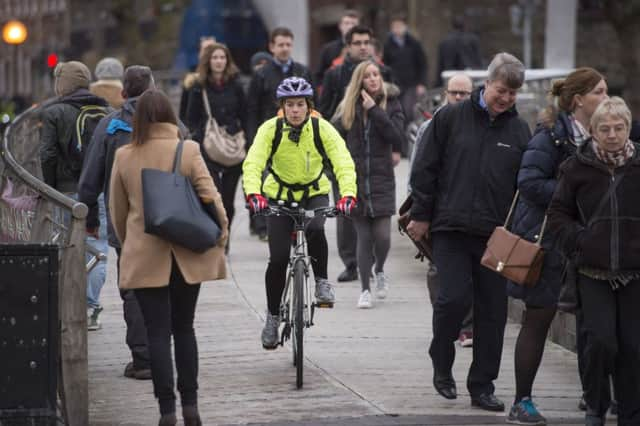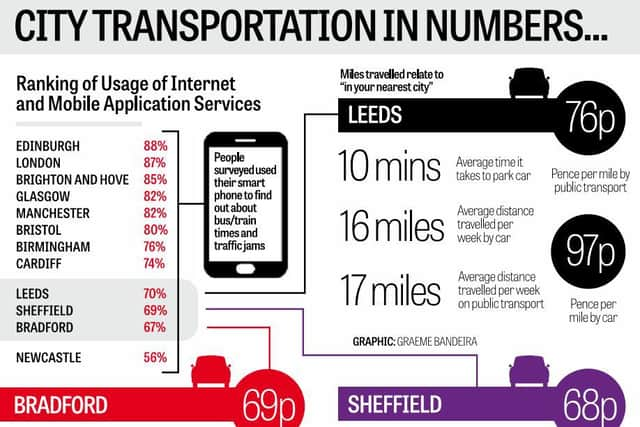Infographic: Why technology fails Yorkshire commuters (and it takes longer to park)
This article contains affiliate links. We may earn a small commission on items purchased through this article, but that does not affect our editorial judgement.


Leeds, Sheffield and Bradford were among the lowest ranked in an analysis of the “smartest” UK cities for commuters.
In Bradford, 67 per cent regularly use their phone to access information about bus and train times or for buying tickets or finding out about traffic jams.
Advertisement
Hide AdAdvertisement
Hide AdThe figure for Leeds was 70 per cent and Sheffield 69 per cent.


This compares to the best-connected city, Edinburgh, where 88 per cent of those surveyed use their phone to access transport data.
The data on 12 cities, gathered by Xerox, showed variations in the use of cars and public transport across Yorkshire cities.
Bradford residents said it took an average of 9.5 minutes to find a parking space in the city.
Advertisement
Hide AdAdvertisement
Hide AdIn Leeds it took an average of 10 minutes to park. The shortest parking time, just under eight minutes, was in Sheffield.
David Jones, a spokesman for Xerox, said the research indicated that size of city had little to do with creating opportunities with mobile technology.
“Edinburgh, Brighton and Glasgow are notable examples of cities that are deploying accurate information and open data in ways that are becoming pre-requisites for modern city mobility.”
The research concluded that adequate parking for cars is critical to city centres.
Advertisement
Hide AdAdvertisement
Hide Ad.“Out of town shopping malls with plentiful free parking will inevitably attract footfall away from city centres unless adequate parking – and the means to find it – are made available,” said Mr Jones.
The research found that High Street parking was considered inadequate with 54 per cent of drivers surveyed saying this was very poor or poor.
The majority of drivers surveyed still use physical meters to pay for parking.
The least used mobile phone applications were those to locate parking spaces (used by just seven per cent) and apps for cycle hire (used by four per cent).
Advertisement
Hide AdAdvertisement
Hide AdMr Jones said local authorities local authorities needed to decide whether to develop apps in-house or to release data to allow third parties to develop their own.
“For areas with low app usage the authorities may need to consider a more regional approach to travel coordination and integration to achieve the necessary critical mass.”
Professor Phil Blythe, professor of intelligent transport systems at Newcastle University, said: ““This report shows that there is an appetite from the public to utilise mobile technology to improve their transport experience. Applications to support public transport travel and parking have widespread use and offer the possibility to develop smarter and user friendly services which will promote more sustainable transport use in major cities. I hope these findings will encourage cities to adopt and roll out new technologies in an effective way.